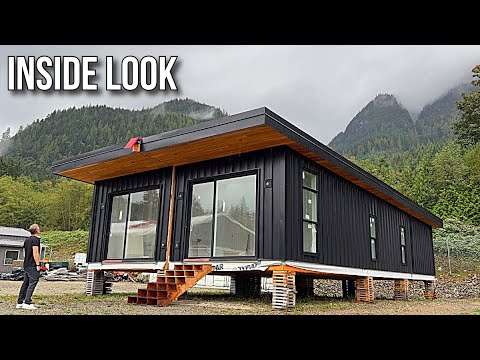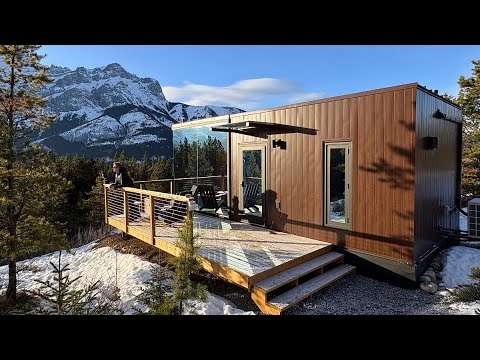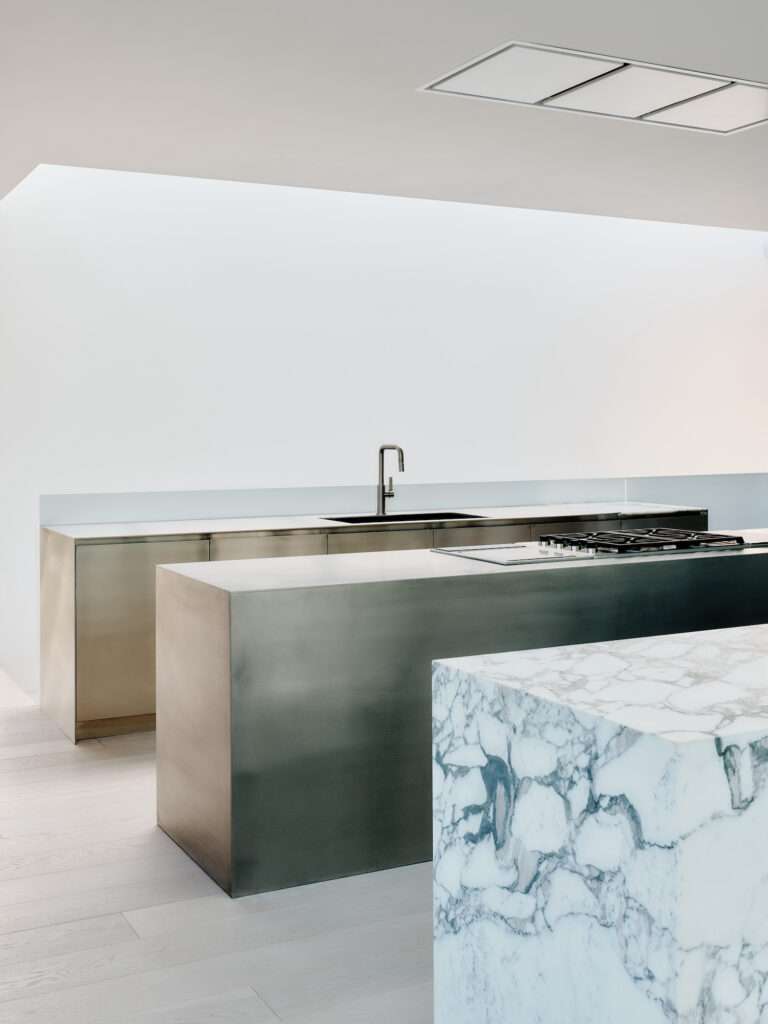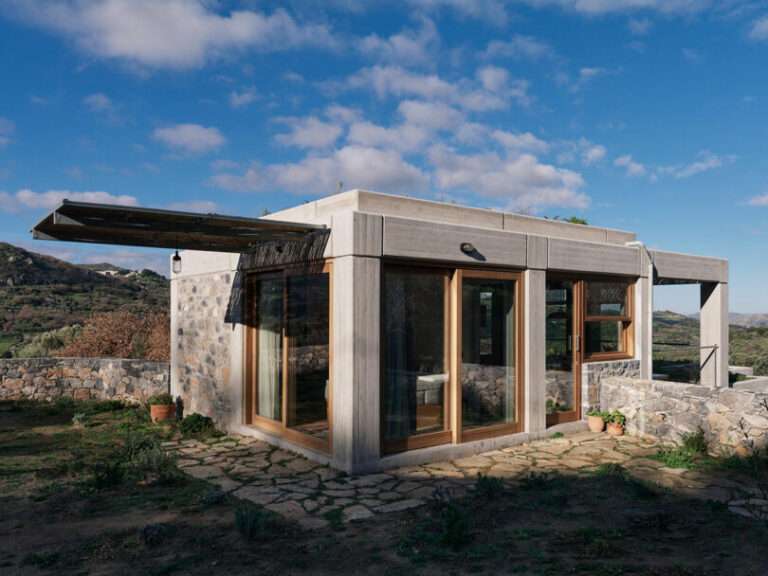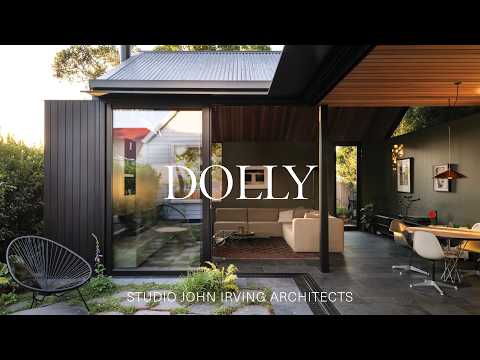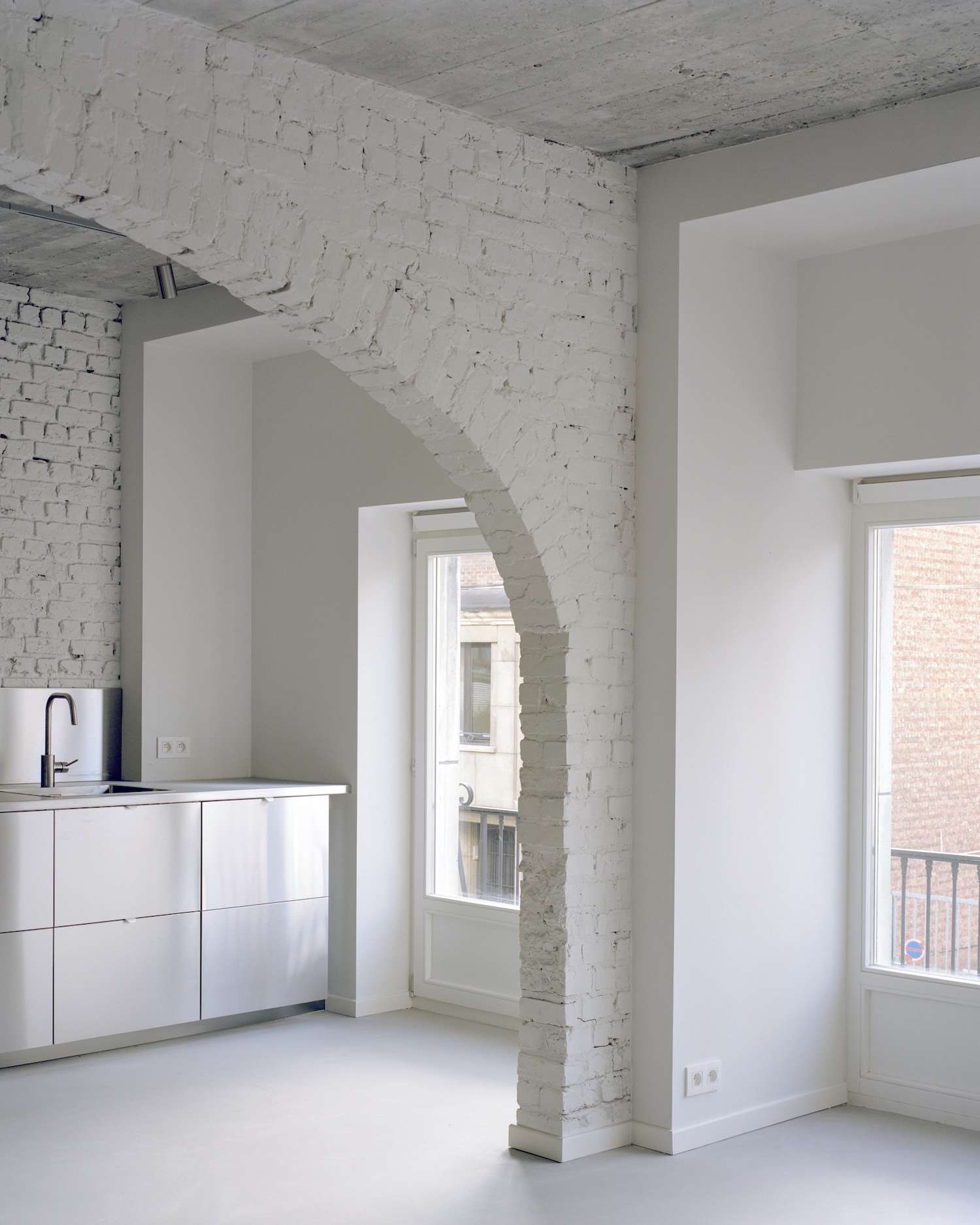
Croissant is a minimal home located in Forest, Belgium, designed by O.U.V.R.A.G.E.S..A pair of spiral staircases wind upward like DNA strands, connecting modest apartments to unexpected rooftop gardens. This architectural gesture—simultaneously practical and poetic—encapsulates the project’s essence: a rejection of the conventional urban development playbook in favor of something more democratic and humane.
When faced with a familiar scenario—a developer seeking to maximize return by adding a luxury penthouse atop an existing structure—the architects proposed a radical alternative. Rather than concentrating value in a single exclusive unit, they distributed it among all residents, creating a series of duplex apartments that each access personal roof gardens through those distinctive double-helix staircases. The result transforms what could have been a standard renovation into something approaching a manifesto on urban living.
The material language speaks to this philosophy. The staircases, likely constructed of powder-coated steel, appear both substantial and light, anchoring each dwelling while visually connecting interior and exterior spaces. Their helical form serves practical purposes—maximizing space efficiency, providing structural integrity—while simultaneously functioning as sculptural elements that define the project’s identity.
This approach reflects a growing recognition among designers that urban housing must evolve beyond mere shelter. “Architecture should not just solve problems but create possibilities,” as one designer in this vein has noted. Here, the possibility created is a new relationship between dwelling and nature, private and shared space.
Historically, this project stands in dialog with precedents like Le Corbusier’s roof terraces and the hanging gardens of metabolist architecture. Yet it feels thoroughly contemporary in its response to urban density challenges and growing concerns about disconnection from nature in city environments. The conversion of former backyard garages into a shared garden further emphasizes this commitment to communal green space.
